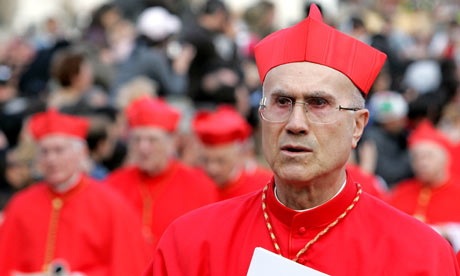Pope Francis’ creation of a group of cardinals to help him govern the Church does not mean he is giving up any of his papal authority — but it may reduce the powers of the Vatican secretary of state.
Paolo Gherri, who teaches the theology of canon law at the Pontifical Lateran University, said he believes the Pope has chosen “people with his same kind of approach” and he saw their role as “a sort of think tank working on new guidelines of ecclesiastical policy”.
He pointed out that all eight of the cardinals chosen by Pope Francis are residential archbishops, meaning that none of them work in the Roman Curia, and only one is Italian.
In an interview with the Italian daily Corriere della Sera, the secretary of the group of cardinals, Bishop Marcello Semeraro, said the possibility of the secretary of state’s powers being diminished “should not be excluded”.
Cardinal Tarcisio Bertone, who served as secretary of state under Pope Benedict XVI, is said to have been a divisive figure within the Vatican and was widely seen as the target of the so-called Vatileaks campaign involving confidential Church documents leaked to the press last year.
Bishop Semeraro recalled that it was Pope Paul VI who bestowed “the secretary of state with supervising and co-ordinating” the Vatican bureaucracy known as the Curia during his 1963-78 pontificate.
“But now, nearly half a century has gone by. We must re-adapt these structures according to the needs of the Church today,” he said.
The collaborator of a cardinal who took part in the conclave that elected Pope Francis revealed to CNA that “the pre-conclave meetings also dealt with the role and function of the secretariat of state”.
Ways to improve the Roman Curia’s efficiency were also suggested, since many cardinals had experienced how slowly Rome responds to their requests and how the Curia’s bureaucracy can stall procedures for months.
Sources:
Image: The Telegraph
Additional readingNews category: World.




